
 Reading, Short And Deep #001
Reading, Short And Deep #001
Eric S. Rabkin and Jesse Willis discuss Zero Hour by Ray Bradbury
Zero Hour was first published in Planet Stories, Fall 1947 (June-August).
Here’s a link to the PDF of the story.
Posted by Scott D. Danielson

 Reading, Short And Deep #001
Reading, Short And Deep #001
Eric S. Rabkin and Jesse Willis discuss Zero Hour by Ray Bradbury
Zero Hour was first published in Planet Stories, Fall 1947 (June-August).
Here’s a link to the PDF of the story.
Posted by Scott D. Danielson

 The SFFaudio Podcast #352 – Jesse, Mr Jim Moon, and Prof. Eric S. Rabkin talk about doors, gates, and portals (and rubicons)
The SFFaudio Podcast #352 – Jesse, Mr Jim Moon, and Prof. Eric S. Rabkin talk about doors, gates, and portals (and rubicons)
Talked about on today’s show:
thinking about doors, individual phenomena, a phenomenological way, white and purity, water, Edmund Husserl, an intensional act of consciousness, the conquistadors, when did WWII happen?, what kind of a phenomenon is a door?, doors are artificial, Narcissus and the lake, a boundary, passages for the whole body, windows, two-way passages, quicksand, horizontal movement, four qualities, the story of Oedipus, the riddle of the Sphinx, man -> mankind, the founding myth of Western culture, Aristotle, from one world to another, Eric in his professorial mode, the word world, were = man, the age of Man, in the world of…, the social domain that human beings create for themselves, prisons, doors as phenomena are artificial boundaries between two different worlds, social changes from one side of a door to another, doors as a phenomenon represent changes from consciously defined worlds, outdoors vs. indoors, inside and outside the gingerbread house, the morning thesis, the idea for this show, windows as opposed to doors, The Wonderful Window by Lord Dunsany, wanting to turn windows into doors, a rich example, sliding doors vs. sliding windows, in Science Fiction…, Robert A. Heinlein, defining the writing style of Science Fiction, the ideal Science Fiction sentence, Beyond This Horizon, “The door dilated and a voice from within said ‘Come in Felix.'”, wasting energy, one little change makes it a Science Fiction world, Heinlein invented the word “slideway”, Friday, from the reader’s armchair world it the fantastic world, folklore, liminality, crossing rivers, wandering into the forest, a wild world with gods and monsters, agrarian rural society -> industrial living, the wardrobe, The Door In The Wall, The Gable Window by H.P. Lovecraft and August Derleth, Dreams In The Witch-house, a locked-room mystery, The Secret Garden, a Wellsian door in the wall, what’s behind the door could be anything, mythical monsters, vampires need your permission to cross your threshold, Dracula comes in through the window, defying gravity and the phenomenology of windows, an instant subliminal marker, ho ho ho, Murders In The Rue Morgue by Edgar Allan Poe, the lore of changelings, leaving the house by the chimney, Little Red Riding Hood, “dispatched by typical female means” (cooking), Alice In Wonderland and Through The Looking Glass, Alice is fantasizing before she leaves the bank of the river, the river side is a liminal domain, dazing, daisies, crossings, protective imagination, opening the door for a sequel, Neverwhere by Neil Gaiman, a girl named Door, London’s underclass, being homeless is living outdoors, a hunter named Hunter, Door’s father is Lord Portico, a door back into Heaven, another rich text, worlds within worlds, the word hinge, ideas hinge upon something, stiles aren’t like doors, stiles don’t have hinges, lichgates and side doors to churches, the dead enter the church through a different door than the living, The Superstitious Man’s Tale by Thomas Hardy, shades of everybody, fourteen saints, a holiday in Germany, the blood of a sacrificial lamb, Exodus, keeping death from the door, all saints day, Jack-O-Lanterns scare off the returning dead, nature, walking through a gate, spirits pass through, how do gates function in keeping out the spirits of the dead, gates as territorial boundaries, “you come in through here”, the laws of territoriality, a keeper of the gate, the gate is the cover of the book, the door is what we cross “Once upon a time…”, “the second page of the first paragraph of a famous book”, why round?, why the exact center?, why green?, Eric’s eyes are green, The Door In The Wall has a green door, magic doors are often green, The Magic Door The Green Door (aka The Little Green Door) by Mary E. Wilkins-Freeman, horrible and messy and smelly, fundamental jokes in the Shrek series, Shrek is green too, kids love farts, About Time (2013), Domhnall Gleeson going through doors, “doors are amazing”, The Phantom Tollbooth by Norton Juster, the Chinese Scholar’s garden at Snug Harbour cultural center, moon gates, gates post signs, gates offer viewpoints, from The Haunted Palace by Edgar Allan Poe:
And all with pearl and ruby glowing
Was the fair palace door,
Through which came flowing, flowing, flowing
And sparkling evermore,
A troop of Echoes, whose sweet duty
Was but to sing,
In voices of surpassing beauty,
The wit and wisdom of their king.But evil things, in robes of sorrow,
Assailed the monarch’s high estate;
(Ah, let us mourn!—for never morrow
Shall dawn upon him, desolate!)
And round about his home the glory
That blushed and bloomed
Is but a dim-remembered story
Of the old time entombed.And travellers, now, within that valley,
Through the red-litten windows see
Vast forms that move fantastically
To a discordant melody;
While, like a ghastly rapid river,
Through the pale door
A hideous throng rush out forever,
And laugh—but smile no more.
the mouth as a door for voice and wisdom (and later a gate for flies and maggots), orifices, doors are artificial, eyes as windows, windows as natural, calm water as a window, the night sky as a window into the universe, window = wind and eye, a metaphor switching meaning, a heart is like a pump and a pump is like a heart, Babylon 5, star-gates, the Twilight Zone show inside Futurama: The Scary Door, Fredric Brown: “The last man on Earth sat alone in a room. there was a knock on the door.”, William F. Nolan’s the door problem, a seventy-foot bug, the imagination trumps revelation, film, Shiley Jackson’s The Haunting Of Hill House (in the book and the film), banging vs. knocking, the unopened door, the end of The Monkey’s Paw by W.W. Jacobs, The Psychoanalysis Of Fire by Gaston Bachelard, “fire: fine servant, horrible master”, poor little rich boys, the ultimate irony: Arbeit Macht Frei, an open gate, the phenomena interpenetrate, Rubicon (lost and found), The Cold Equations by Tom Godwin, “h amount of fuel will not power an EDS with a mass of m plus x”, uni-directional time travel as a kind of rubicon, Julius Caesar’s crossing, Alea iacta est (“The die is cast”), suicide, Jean Paul Sartre, Rip van Winkle, rubicons are natural, driving in Los Angeles county, counties and shires divided by rivers, the mouth as a (mostly) one way door into the body, Protector by Larry Niven, the tree of life root is a one way door (a rubicon), The King In Yellow by Robert W. Chambers, The Ring, the River Styx, ancient heroes and gods crossing back and forth across the river Styx, biological machines, Jesus Christ’s tomb door, a locked room mystery, doubting Thomas, The Cold Equations as a demarcation between materialist SF and all other kinds, rejecting the premise of the story, two kinds of laws, “Marilyn willingly walks into the airlock and is ejected into space.”, myth vs. hard Science Fiction vs. soft Science Fiction, The Hitch-Hiker’s Guide To The Galaxy by Douglas Adams, a few examples in literature, The Pied Piper of Hamelin, seven gates to Hell in Pennsylvania, Hell, Michigan, Audie Murphy’s To Hell And Back, a rubicon as an irrevocable choice, The Subtle Knife by Philip Pullman, Will cutting portals to other realms, “the ability to create portal given to someone on the cusp of puberty”, age 21 (given the key to the door), Key to the city, garter -> gate, barbicans, walled homes in the northern Mediterranean, doors within doors, protected by the laws of the city, the freedom of the city given to military units, Janus -> January, a two faced god and the god of doors, the doors to the temple of Janus are closed, open cities, Brussels, the locking of doors, growing up in New York you’re never fully at peace, living in Strawberry Point, Iowa, wifi open vs. wifi encrypted, wardriving, keeping the door open, the subspecies, dutch-doors, squeaky hinges, a door that opens up, China Mountain Zhang by Maureen F. McHugh, “falling backwards into a world in which a consciousness extends infinitely in all directions”, “the phenomenology changes the epistemology”, ontological differences, The Star Rover by Jack London, a portal to other places and times via astral projection, even in confinement one can find ways out, The Demolished Man The Stars My Destination, Hypnos by H.P. Lovecraft, the restriction of the coffin of the body, jaunting, The Count Of Monte Cristo by Alexandre Dumas, The Twilight Zone episode The Hunt, a country bumpkin -> a rural American, all dogs go to heaven, gatekeepers and doorkeepers, porter, the Battle of the Teutoburg Forest, wine drinkers and beer drinkers, the Sapir-Whorf hypothesis, was anything down that hatch on Lost?
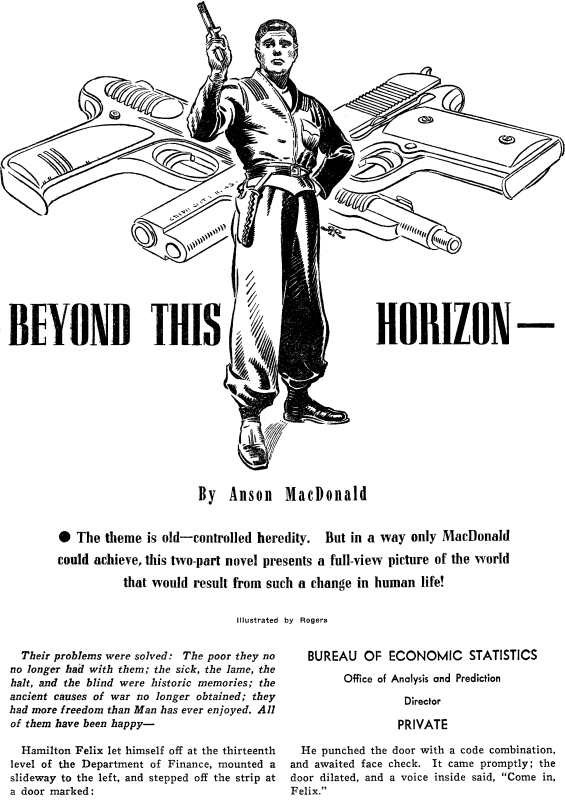

Posted by Jesse Willis

 The SFFaudio Podcast #345 – Jesse, Paul Weimer, Bryan Alexander, and Professor Eric S. Rabkin talk about the Star Maker by Olaf Stapledon.
The SFFaudio Podcast #345 – Jesse, Paul Weimer, Bryan Alexander, and Professor Eric S. Rabkin talk about the Star Maker by Olaf Stapledon.
Talked about on today’s show:
1937, Jesse has a radical thesis, is this book a true story?, I’m not really happy I just think that I am, Alice In Acidland, drugs, what do we mean by true?, arachnoids and ikthyoids, a summary of Last And First Men, the unnamed narrator, astral projection, the contents of this book, not history but a personal experience (of imagination), standing on a hill, an interesting fantasia, considering the size of the universe, Star Trek with Nazi costumes is possible and perhaps even inevitable, The Truman Show, the nature of infinity, an Italian who would be perfectly happy to use the word true about this book, “Midway upon the journey of our life I found myself within a forest dark.”, bitterness, Dante Alighieri, a lyric poem, Olaf Stapledon was a philosopher, a blazing panoply, an image of the rose, OS, “One night when I had tasted bitterness I went out on to the hill.”, an abiding faith, the original meaning of comedy, comedies end in marriage, sitcoms, both narrators acknowledge their psychological state, an exponential rhythm, overhead obscurities in flight, a Doppler shift, the other Earth, Bvalltu, a composite character, planets – > solar systems -> galaxies, a fractal experience, an encompassing wisdom, marriage as a small atom of community, spirit inhabited rock, a World War I novel, 1986, Eric taught Star Maker to Bryan, memories imbricated upon each other, the preface, Stapledon was an ambulance driver in WWI, looming WWII, militarism, seeing the sunny side of a ruined planet, Merseyside, too smashed up to really be alive, a 1930s novel, fascism vs. communism, how to organize the self and society, a secular myth, a shock to civilization, the cycle of mechanization, terrible mutations, the onset of the tank, a sense of horror, WWI and WWII as two different episodes, the Spanish Civil War, shaking off colonialism, materialistic industrialization, the only wait out is an act of faith, how can we not think of the Star Maker as a monster, “struck dumb with shame”, limitations of the audio medium, Bryan’s keyboard, C.S. Lewis, why C.S. Lewis didn’t like Star Maker, a Lewis-nemesis, crusades, the Great War on Terror (2 decades old), mindless religious violence, anticipations of subsequent Science Fiction, The High Crusade by Poul Anderson, two 20th century philosophies, Freud and Marx, neurosis and sublimation, genitals with sense organs, radio pornography, the feelies from Brave New World, crisis of labour, ideologies as philosophical artifacts, not Dave Singer, separated by space and time, supplementary parentheses, adduction of Christianity, three linked universes, playing for the souls of the creatures, a timeless heaven and a timeless hell, Earth, Mars, and Venus in C.S. Lewis’ Space Trilogy, suffering for the redemption of the Earth, explicitly not a Christian view, C.S. Lewis’ Space Trilogy as a response to a paragraph in Star Maker, all the Christs of all the worlds, “a basket of Christs”, this is Arthur C. Clarke, a tour of Science Fiction in the future, this is The Mote In God’s Eye, The High Crusade, the novel itself is a universe, cosmos vs. universe, Jesse’s theory about the Game Of Thrones universe in the TV show, what Clarke does this in slight watercolours Stapledon paints in bold oils on a massive canvas, Arthur C. Clarke’s life changing moment, copying out the scales of magnitude, Bryan’s son, encapsulating, it is Stapledon, Dante is Dante in The Divine Comedy, The Divine Comedy as political revenge, Niven and Pournelle’s Inferno, Stapledon is not a punishment guy, when Lovecraft looks out of the universe…, when Stapledon looks at the same vista he’s not as melancholy about it, The Cats Of Ulthar, contemporaries, philosophical horror, long distance psychology, like Poe, fairy tales, handling fears, we get to feel, this is an education effort, quite special, a genre issue, the roller-coaster moment, looking at the vocabulary, eldritch and ichor, lucidity, feeling, the etymology of the word “vermin”,
I reflected that not one of the visible features of this celestial and
living gem revealed the presence of man. Displayed before me, though
invisible, were some of the most congested centers of human population.
There below me lay huge industrial regions, blackening the air with
smoke. Yet all this thronging life and humanly momentous enterprise had
made no mark whatever on the features of the planet. From this high
look-out the Earth would have appeared no different before the dawn of
man. No visiting angel, or explorer from another planet, could have
guessed that this bland orb teemed with vermin, with world-mastering,
self-torturing, incipiently angelic beasts.
the stellar wars, too lucid for more tribal patterns, sympsychic partnership, angelic vermin, more real than all the stars, like two close trees grown together, difference can be strength, the Orson Welles radio version of The War Of The Worlds, versus the Martians our differences don’t make a hill’s worth of difference, The Lord Of The Rings, looking for the Ents and the Entwives, there are Ents in Star Maker, the holy sex transmission that never got off, the ships worlds,
It was a strange experience to enter the mind of an intelligent ship to
see the foam circling under one’s own nose as the vessel plunged through
the waves, to taste the bitter or delicious currents streaming past
one’s flanks, to feel the pressure of air on the sails as one beat up
against the breeze, to hear beneath the water-line the rush and murmur
of distant shoals of fishes, and indeed actually to hear the
sea-bottom’s configuration by means of the echoes that it cast up to the
under-water ears. It was strange and terrifying to be caught in a
hurricane, to feel the masts straining and the sails threatening to
split, while the hull was battered by the small but furious waves of
that massive planet. It was strange, too, to watch other great living
ships, as they plowed their way, heeled over, adjusted the set of their
yellow or russet sails to the wind’s variations; and very strange it was
to realize that these were not man-made objects but themselves conscious
and purposeful.Sometimes we saw two of the living ships fighting, tearing at one
another’s sails with snake-like tentacles, stabbing at one another’s
soft “decks” with metal knives, or at a distance firing at one another
with cannon. Bewildering and delightful it was to feel in the presence
of a slim female clipper the longing for contact, and to carry out with
her on the high seas the tacking and yawing, the piratical pursuit and
overhauling, the delicate, fleeting caress of tentacles, which formed
the love-play of this race. Strange, to come up alongside, close-hauled,
grapple her to one’s flank, and board her with sexual invasion. It was
charming, too, to see a mother ship attended by her children. I should
mention, by the way, that at birth the young were launched from the
mother’s decks like little boats, one from the port side, one from the
starboard. Thenceforth they were suckled at her flanks. In play they
swam about her like ducklings, or spread their immature sails. In rough
weather and for long voyaging they were taken aboard. At the time of our
visit natural sails were beginning to be aided by a power unit and
propeller which were fixed to the stern.
nothing like this in Science Fiction, Lloyd Abbey’s The Last Whales, an elegiac book, another sub-genre of Kindle based pornography, much of William Wordsworth’s poetry is admired too simply, Eric reads Lines Composed Upon Westminster Bridge, the houses with windows like sleeping eyes, watching the lives of dreams, the houses are sleeping not the people within them, the smokeless air, lying still, what makes the beauty, The World Is Too Much With Us, a cry for God, Fungi From Yuggoth (IX): The Courtyard by H.P. Lovecraft:
It was the city I had known before;
The ancient, leprous town where mongrel throngs
Chant to strange gods, and beat unhallowed gongs
In crypts beneath foul alleys near the shore.
The rotting, fish-eyed houses leered at me
From where they leaned, drunk and half-animate,
As edging through the filth I passed the gate
To the black courtyard where the man would be.The dark walls closed me in, and loud I cursed
That ever I had come to such a den,
When suddenly a score of windows burst
Into wild light, and swarmed with dancing men:
Mad, soundless revels of the dragging dead—
And not a corpse had either hands or head!
deemed unfit, body horror, Robert E. Howard, M.R. James, ever more capacious mentalities, being taught by groups, the Star Trek: The Next Generation episode The Inner Light, The Horla by Guy de Maupassant as a horrible version of this, Passengers by Robert Silverberg, Boneland by Jeffrey Thomas, from a microscopic perspective, these things pass, bodyless timelords, a swarm of locusts, eugenics, Chapter 9, cultural and eugenical means, The King In Yellow (The Repairer Of Reputations) by Robert W. Chambers, the lethal chamber, Futurama, Providence, Alan Moore, criticism of Moore, turning everything Lovecraft hates into love, Last And First Men was a bestseller in 1930, the fifth generation, the Martian hive-mind, what is the moral ideal that Stapledon hopes that we move toward?, individuality in community, a literary allusion, a race on Venus, from epoch to epoch, that scaling thing again, the problem with fascism, fasces, is this a Darwinian book?, parasitism, symbiosis, evolution, Marx dedicated Capital to Darwin, getting rid of Harper, mutual aid, The World, the Flesh & the Devil by J.D. Bernal, astronomy, Peter Kropotkin (Mutual Aid: A Factor Of Evolution), mutual slaughter, profit in fraternization with the enemy, like Rod Serling The Monsters Are Due On Maple Street, gentleness as a religion, the entangled bank (in Origin Of Species), functional stability arising out of local possibilities of violence, virtue in the creator is not the same of virtue in the creature, a third position, the sense experience of a star, in the center of this paragraph, free will and determinism are compatible, always bigger, a selfless star, the normal voluntary motor activity of a star, if you empty your ego and just feel others, perfect selflessness allows entrance into perfect community, getting your karma clean, dark matter, the science is pretty damn good, the key word is “lucid”, the vast emptiness enables the insight into the stars, rubies lay behind me, the sky’s familiar diamonds, all possible light, watch Steven Universe, ageless like Star Maker, the tag cloud, world and worlds, Oswald Spengler, growth -> change -> decay, the myth at the end, the course of empire paintings, The Decline Of The West, Arnold J. Toynbee, future histories, we could see if we were lucid, a great Götterdämmerung moment, the Russian civil war, The White Goddess, The Golden Bough, subsequent Science Fiction, for those who haven’t yet read the book…, the most disliked and most liked book, what kind of a novel is this?, an epic poem crossed with a lyric poem, erroneous expectations, feel better about your fishwife and your step children, back to Lovecraft, a writer of ideas, Odd John and Sirius are more like regular novels, Jack London’s Star Rover, more swords fewer wives, Frank Herbert, God Emperor Of Dune, when you frame it that way…, Accelerando by Charles Stross, full time IT professionals writing SF, Ted Chiang and Cory Doctorow, Ted Chiang can do anything, lapidary, Jorges Luis Borges wrote an introduction for Star Marker, A Story Between Jest and Earnest, Love and Discord.
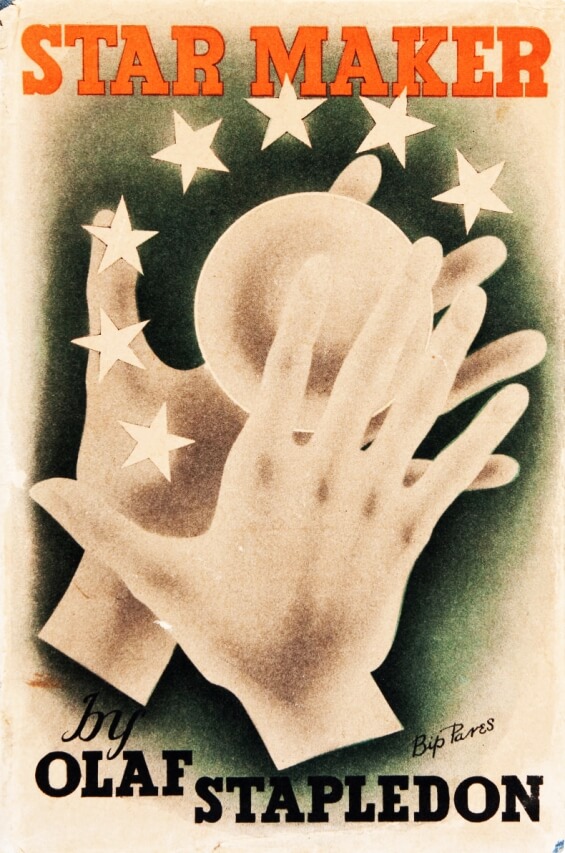
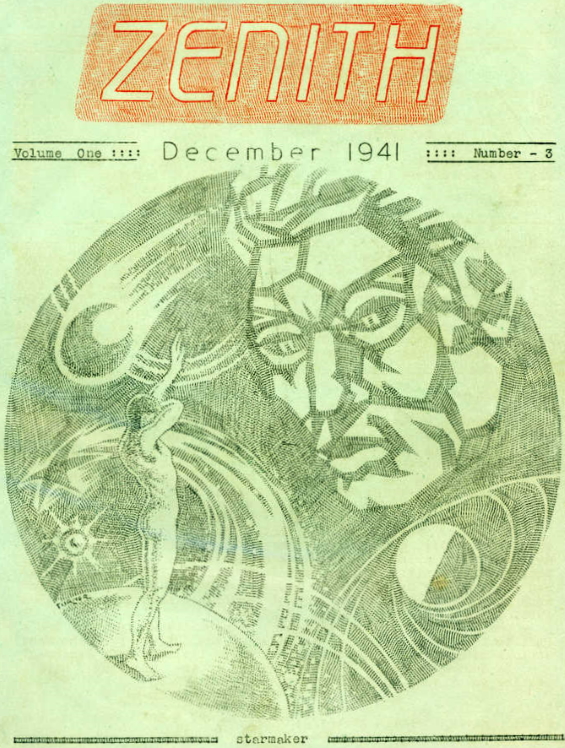
Posted by Jesse Willis

 The SFFaudio Podcast #334 – The Birth-Mark by Nathaniel Hawthorne; read by Fred Heimbaugh. This is an unabridged reading of the story (50 minutes) followed by a discussion of it. Participants in the discussion include Jesse and Fred.
The SFFaudio Podcast #334 – The Birth-Mark by Nathaniel Hawthorne; read by Fred Heimbaugh. This is an unabridged reading of the story (50 minutes) followed by a discussion of it. Participants in the discussion include Jesse and Fred.
Talked about on today’s show:
The Pioneer, March 1843, a Hawthorne Poe fest, contemporaries, The Scarlet Letter, a quote by Poe about Hawthorne, the CBS Radio Mystery Theater, well known?, why this story Fred?, he’s obsessed with sin, sociopaths, trigger warnings, neurosis, shame, luck, shaped by sin, a mark upon the family, subconscious Freudian messages, Commentary Magazine, Why College Kids Are Avoiding the Study of Literature by Gary Saul Morson, textual density, vocab, Lovecraft poems, Fungi From Yuggoth poems, harbours, kids are now shuttled between school the home and the mall, ranting against Hawthorne, The House Of The Seven Gables, revolutions in 20th century literature, Ernest Hemingway, the show don’t tell revolution, Hawthorne is the telling-est teller who ever telled, the right attitude toward sin, the two facedness of people, Hawthorne is attacking late stage decadent Puritanism, a homosexual vibe, what is the lesson?, science reaches too far?, Gothic horror, the evil wizard or the mad scientist, science as the channel to unlimited power, elixirs, potions, not even futuristic, Georgiana, Aminadab?, where is this story set?, Aylmer’s castle, Aylmer’s wealth, a compartmentalized life, from the third person POV, the host narration, obsession, the left side, the sinister side, she’s been marked, in the dream, chemical means, pre-Darwin, “I’ve got these old books”, Mary Shelley’s Frankenstein, a natural philosopher, science vs. alchemy vs. magic, Isaac Newton, almost as if he was Ben Franklin, electricity, many suitors, Aylmer’s wooing, is Aylmer gaslighting Georgiana?, she’s reading, a Medieval heroine, a character of of Greek mythology, is a sex-change story?, is this a boob-job story?, envy, the tips of two small fingers, she’s compared to a marble statue, small pox scars, Marilyn Monroe‘s beauty mark, does positioning matter?, Supernatural Horror And Literature by H.P. Lovecraft, a meditation on obsession, many uninteresting analysis, so little action, beyond the sexual interpretation, Hawthorne doesn’t seem all that prudish, how far can you go in purist of perfection in a fallen world, a mark of original sin, wanting knowledge (of good and evil?), the sin of disobedience, Frankenstein and Aylmer are reading the same books, the process of creating a man in Frankenstein, the lightning bolt, Luigi Galvani, grave-robbing, Paracelsus, the gold thing is your way of getting funding, when writing a grant…, this might lead to a cure for cancer(!), alchemy as a religion, The Cask Of Amontillado, Eric S. Rabkin, “the niter, it grows”, Montresor or Fortunato, niter, growing human shaped things inside of bottles, poisons, psychology and the occult, the difference between alchemy and science is openness, the Royal Society, Harry Potter’s school, there have to be muggles, magically oblivious, J.K. Rowling, natural greed, the ethic of sharing knowledge, France’s version of the Royal Society, like the obsession with “open source” or the “public domain”, The Oval Portrait by Edgar Allan Poe, sooo lifelike, sooo beautifully painted, Gothic horror, the evil mad scientist is destroyed by the power he unleashes, The Portrait Of Dorian Gray by Oscar Wilde, the ending, what is Hawthorne saying?, was Aylmer’s attempt doomed from the beginning?, Jesse’s mom, one of the most important powers of a teacher, she has “THE VOICE”, Muad’dib (Paul Atredies), Steve Jobs’ reality distortion field, a profound revelation, philosophy and critical thinking, vitamins are bullshit, fish oil woke Fred’s brain, North America has the world’s most expensive urine, religion wants you to take it on authority, bronze age holy texts, religion as book club where you only ever read one book (or just listen to a guy who did), cynicism or wisdom, loyalty to the organized religion of your family, inherited religions, fundamentalist belief systems, the narcissism of small differences, splintering, revolting revolutionaries, purity of doctrine, young earth creationists, Catholicism as an almost ethnicity (an identity), Hawthorne as a stopgap between H.G. Wells and Mary Shelley, the murky origins of Science Fiction, Dante, Lucifer frozen in the ice, a Gothic ghost story, Frankenstein’s obsession is with defeating death, too in love with science, Hawthorne’s message is like: “don’t drink too much”, Greek symposia, what really happened at a Greek symposium, “write drunk and edit sober”, The Odyssey, mixing water with wine, getting plastered is a sign on unmanning, the Greek obsession was with finding the moderation between too little and too much, what was Hephzibah’s sin?, her sin is being too worried about sin, “you will eat blood”, public shaming is a little much, be moderate with your casting of sin, John Wesley, a healthy functioning society, wealth corruption, falling into decadence, the protestant work ethic is kicking-in, Guggenheim, ransoming the grandchild, leaving it all to art, Andrew Carnegie, John D. Rockefeller, Fred’s all time favourite Science Fiction novel: The Diamond Age by Neal Stephenson, how do we raise the next generation?, a supercharged Kindle, matter compilers, Star Trek‘s replicator, eating green sludge, window panes made out of pure diamond, handmade hipsters, how you raise the next generation in a wealthy society, we are unimaginably wealthy, are Japan’s young people uninterested in sex?, Richard Dawkins on Twitter, The Last Question by Isaac Asimov, Gothic-y, Science-y, Microcosmic God by Theodore Sturgeon, a great inventor, Neoterics, he’s stealing their ideas, the ultimate mad scientist story, following in the tradition, somatoypes, ectomorph (Aylmer), mesomorph (Aminidab), endomorph (Jesse), it’s a scam!, Hillary Clinton, the Ronald Reagans of the world, this is astrology, people think that once you’ve got a word for something you understand it, wearing the mask long enough…, IQ tests, quantification, any time we think we understand the most complex thing in the universe…, there really is a subconscious, tweeting dreams, psychology, the book club with only one book in it, The Great Courses (The Teaching Company), Eric S. Rabkin, survey courses, kooky specializations, the best way to learn, the perennial student, taught not to learn, philosophy of art, credentialism, Jesse can guess the exact words in a student’s vocabulary, guess your weight or age, how Jesse gets work, gaming credentialism, no high school diploma, a contempt for institutionalized learning, a play-by-the-rules personality, grade inflation, what did Mussolini do?, intimidation vs. cultivation, give the students the experience of reading, reading as a meeting of minds, defending a dissertation, essays, we’re obsessed with essays (for the wrong reason), ohhh spoilers!, the big problem with almost any media, “I don’t want to spoil it for you.”, testing is easier, a kind of objectivity, don’t blame the actors for shitty Hollywood movies, status is society, education as the cultivation of minds, there aren’t enough people who are willing to rebel!


Posted by Jesse Willis



 The SFFaudio Podcast #277 – Dracula’s Guest by Bram Stoker; read by Robert White (of LibriVox). This is an unabridged reading of the story (30 minutes) followed by a discussion of it. Participants in the discussion include Jesse and John Feaster.
The SFFaudio Podcast #277 – Dracula’s Guest by Bram Stoker; read by Robert White (of LibriVox). This is an unabridged reading of the story (30 minutes) followed by a discussion of it. Participants in the discussion include Jesse and John Feaster.
Today’s podcast is sponsored by Downcast, a wonderful podcast app for iPhone and iPad.
Talked about on today’s show:
1914, Dracula’s Guest And Other Weird Stories by Bram Stoker, our SPONSOR: Downcast, an app for iPhone and iPad, a super-customizable podcast app, Mark Maron’s WTF, Comedy Bang! Bang!, The H.P. Lovecraft Literary Podcast and the premium feed, swapping out of the Music app (aka the old iPod app), an incredibly intuitive app with deep features, download on the go, and lock episodes, awesome, is the narrator Jonathan Harker?, if Dracula wasn’t in the title…, Leslie S. Klinger, a sore throat, having Dracula in the background, Countess Dolingen of Gratz, Carmilla by Sheridan Le Fanu, Styria, Austria, shout-outs used to be called homages or allusions, striking images, “the dead travel fast”, the wolf itself, the spike or stake, knives, fully formed vampire features, Varney The Vampire, the soldiers, the figure on the road, what is Dracula’s motivation?, is he learning how to be English?, Walpurgisnacht, the “Borgo pass”, adaptations, enigmatic reactions and situations, rescue, Dracula is the puppet master behind virtually everything in the story, Dracula’s colonial mission, why is Dracula going to England?, a veneer of normalcy in Castle Dracula, They Thirst by Robert R. McCammon, Lifeforce, Salem’s Lot by Stephen King, Lovecraft’s description of the plot of Dracula, The War Of The Worlds by H.G. Wells, getting inside, “precious bodily fluids”, a threat from the East, The Case Of Charles Dexter Ward by H.P. Lovecraft, a threat from a more ancient time, out of fairy tales, a desperate victory, omnipresent, the weather, vampires can control the weather, the white shroud of the snowstorm, non-epistolary approach to Dracula, evocative and visceral, explaining cheesecake, was there a Countess Dolingen?, The Games Of Countess Dolingen (1981), chilling stories, the women, a “he” being rescued, sexuality, the caress of the weather, bier, a whole set-piece, is the tomb scene a glamour?, a seduction, Anno Dracula by Kim Newman, counts and countesses, working class vampires, Eric S. Rabkin on vampirism and lycanthropy, the sailors are Dracula’s Big Mac, the Demeter, Walpurgis Night, are Dracula’s powers expanded on Walpurgisnacht?, superpowers added on the fly, the villagers are always right, The Dreams In The Witch-House, The Haunter Of The Dark, The Lurker In The Crypt, “The Thing In My Coffin”, shared tradition, tradition as superstition, the ancient extinction of the mega-fauna may have engendered a hunting ethos in the native North Americans, The Woman In Black by Susan Hill, Harker is sent by his boss to Transylvania, at the crossroads with the inarticulate driver, thousands of tiny eyes watching Jonathan Harker, is Countess Dolingen aware of Dracula’s plan?, “the dead travel fast”, Russian, a warning from a previous vampire slayer?, a left-handed compliment, the rod, unanswered questions, the lack of clarity makes it evocative, effective accidents, August Derleth-style, what do we really know about Socrates?, water elemental?, meaning was not the point but rather he intended effect, such a good story, a delicious bon-bon sitting on a silk pillow, “interminable”, Dracula’s Guest ought to always precede Dracula itself, had Dracula’s Guest been released as the first chapter of a novel today…
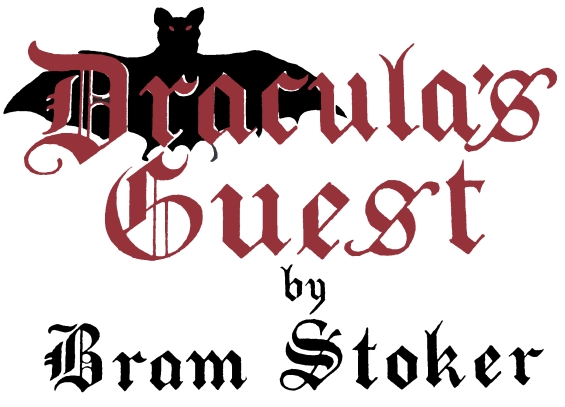
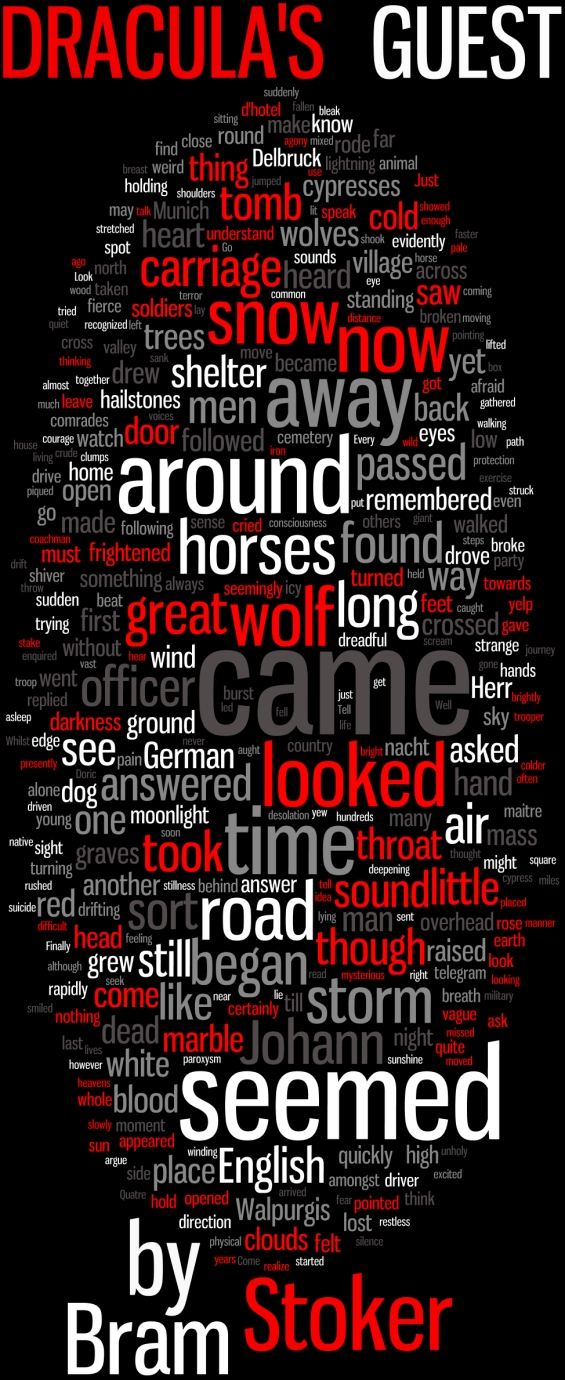
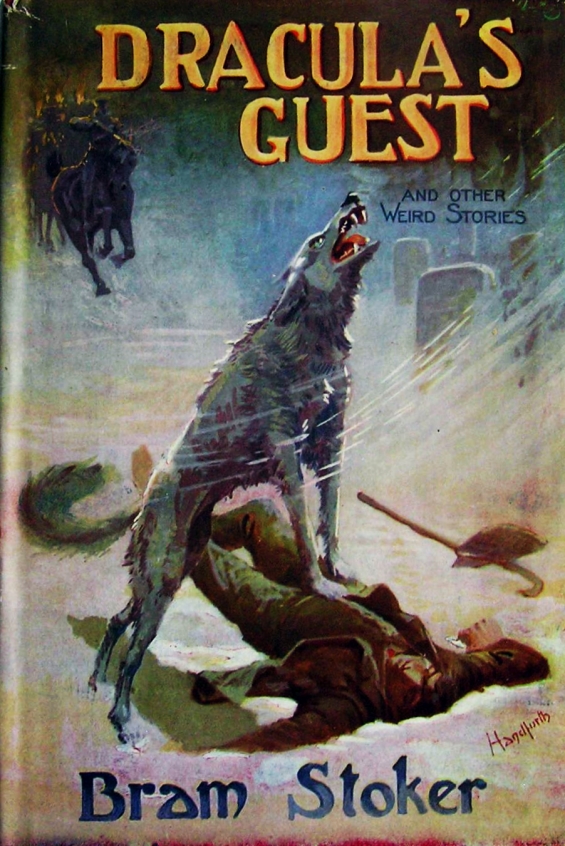
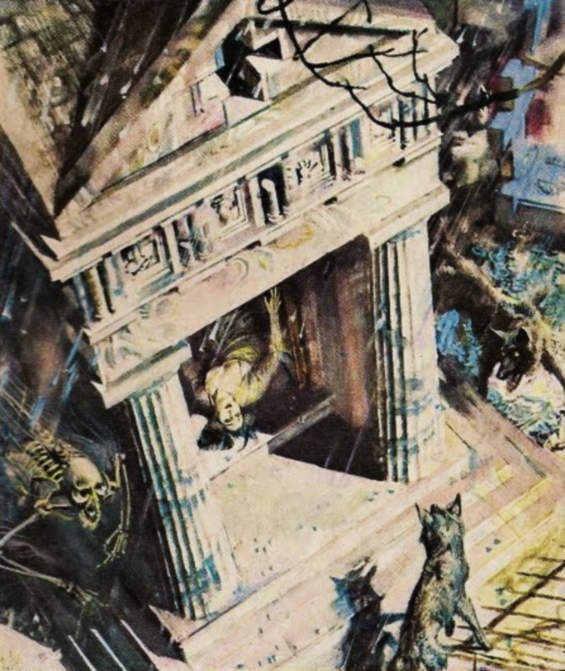
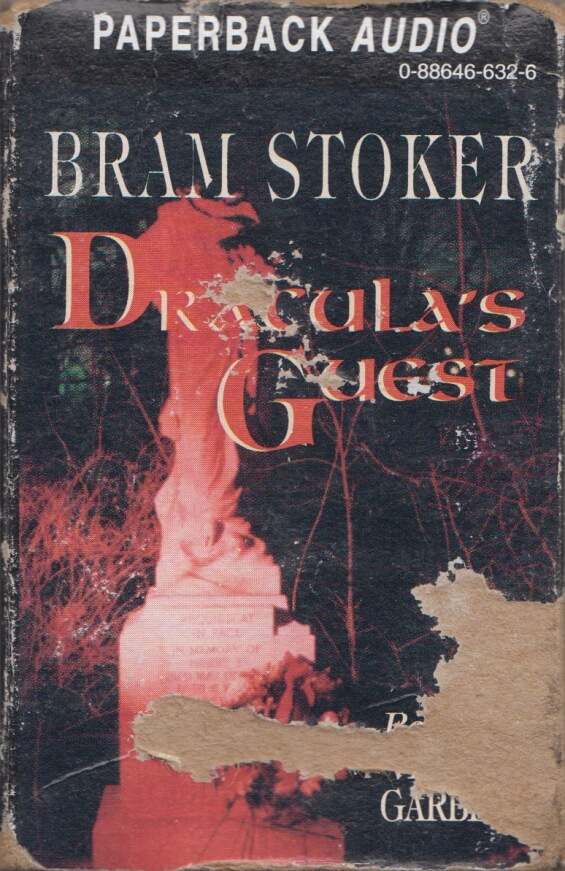
Posted by Jesse Willis


 The SFFaudio Podcast #276 – Jesse, Tamahome, and Fred discuss Angelmaker by Nick Harkaway.
The SFFaudio Podcast #276 – Jesse, Tamahome, and Fred discuss Angelmaker by Nick Harkaway.
Today’s podcast is sponsored by Downcast, a terrific podcast app for iPhone and iPad.
Talked about on today’s show:
Fredösphere’s (Fred Heimbaugh’s) choice, the Ann Arbour Science Fiction And Fantasy Literary Discussion Group (founded by Eric S. Rabkin), the audiobook, the confusing and scatter first half of the book, the audio version, Daniel Wayman is one of the best narrator’s Fred’s ever heard, A Scanner Darkly by Philip K. Dick (read by Paul Giamati), some books are better as audiobooks and some are better as textual books, Anathem by Neal Stephenson, Tony C. Smith, StarShipSofa, the glossary takes 30 minutes, Angelmaker is 18 hours, you have to pay close attention, do you listen to podcasts?, our SPONSOR: Downcast, the new iOS, Apple’s Podcasts App sucks, Downcast allows you to ultra-customize your podcast feeds, Levelator, volume booster for podcasts are too quiet, Protecting Project Pulp, Dan Carlin’s Hardcore History and Common Sense, noisy environments, the Downcast app is $3, updating feeds on the go, a podcast queue, if it isn’t in the iTunes store …, your custom HuffDuffer feed works great with Downcast, the SFSignal Three Hoarsemen Podcast, Tamahome uses Downcast, back to our regular programing, Jesse has no opinion about Angelmaker, this is Neil Gaiman’s Neverwhere by somebody else, the Neverwhere BBC TV adaptation, Nick Harkaway’s writing voice and actual voice are similar to Neil Gaiman’s, a completely undisciplined novel, a meandering through-line, the prose was “too plummy”, an editor with a strong whip-hand, Harkaway is enamored with great ideas, Goodreads has angry and bitter four and five star reviews for Angelmaker, unfinished novels don’t often get reviewed, books take a lot of time, why is it present third person every day tense?, breezy and informal sixteen-hour shaggy dog story, really really good writing, Ted Chiang, just because it’s old doesn’t mean it’s good, Tam is surprised, history and science, Neil Gaiman’s wild son?, talking about interesting things in interesting ways with interested characters, sexually aggressive women, a pulp fiction novel, Fred lays out the plot, Joe Spork, Matthew “Tommy-Gun” Spork, the grandfather, clockwork bees, a doomsday device, a female James Bond, the evil Asian mastermind, absurdly competent, Remo Williams, the Opium Khan aka Shem Shem Tsien, a brilliant French scientist (a Hakote), the “Apprehension Engine”, fundamentally transform human consciousness, waves, “step one: steal underpants”, instantly intuit the truth of reality, Nick Harkaway is interested in interesting things, the throwaway ideas, Project Habakkuk, a WWII project in a WWII setting, an aircraft carrier built out of ice, the u-boat service, cool and interesting, the frozen submarine and the frozen air-craft carrier, if Jesse wrote fiction…, a submarine and an elephant in the same sentence, this book has dream-logic, Harkaway wanted the submarine encased in ice and didn’t care if it was implausible (a rumour), torture, sex, a Saint-Crispin’s speech, an adventure book, humour?, funny?, a romp?, silly?, allusions, The Gone-Away World, Tigerman, steam-punk, clock-punk, the etymology of the word “punk”, coming from the street, about the visual, about the body, Neuromancer, looking and acting like a punk, steampunk is about dressing up, form and colour over function, Hayao Miyazaki, an obsession with body parts, an obsession with torture, “fingers getting cut-off”, one of the Goodreads reviews, the toe obsession, Polly’s sexy and knowledgeable toe, this book is a thousand Chekhov’s guns, the toothless dog, the Snowy of this novel, Tin Tin, Tam should read Tin Tin, Angelmaker would be a really good HBO show, the names, Spork, Friend, Cradle, realism is not being strived for, a word cloud for Angelmaker, what words are being used, over description, the main character looks at himself in a mirror, not a mirror but polished brass, very clever Nick Harkaway, René Descartes, a steam-punk pulp adventure spy thriller, Robert E. Howard’s muscular description of colour, Howard wrote short, a serious issue, very interesting and difficult reading, the tense, Nick Harkaway is Neal Stephenson by way of P.G. Wodehouse, people drowning in a world of epic fantasy, Grimm’s Fairy Tales characters are puppets, over-description, Joshua Joseph Spork embraces his gansterhood, Luke Burrage’s complaint about American Gods, the character arc, false or indulgent, decapitating the evil mastermind, the Thompson sub-machine gun, aggressively turning off a large portion of one’s brain, Ada Lovelace, trains are cool, cheap complaints, an unplugged wild adventure book, Blood Music by Greg Bear (short story and novels), what is he trying to say here?, science fiction writers, Eon, The Wind From A Burning Woman is an amazing author collection, despite the caveats, the “grey goo problem” and the nature of consciousness, is it the case we are not seeing the world directly?, medium sized objects, trucks and trees, Jesse found it very frustrating, the movie people, a comic booky plot, animation?, John le Carré, paging Dr. Freud, no editors, do editors even exist any more, Marissa Vu works for the author, enjoy a ride and live in a world and drown in an environment, the reader makes an investment in the world building, Darkon (2006), LARPing (live action role playing), Cory Doctorow, Jim Butcher, regular people, Elidor and Aquilonia, more fun to play than to watch, Dungeons & Dragons, more word-play and less shield-taping, escaping from a horrible day job, Thomas Jefferson’s idea for state-names, Fred’s novel, “you’re not like most people you read books”, to each there own, make it shorter and better, a unit of Jesse (7 hours), Ivanhoe, Sir Walter Scott, the modern medieval romance, Game Of Thrones, why Fred fully forgives Angelmaker‘s failings, scenes that don’t just advance the plot, when Jesse wrote fiction it was terrible, being blind to your own faults, self-blindness, the four boxes, incompetent but self-aware, the inevitable decline, Elmore Leonard, Rum Punch, Stephen King, William Gibson, Altered Carbon by Richard K. Morgan, early success, an overflowing fountains of ideas, Tam and Jesse were obsessed, enormous fun, Jesse doesn’t read books for fun but rather for edification, Mike Resnick, instinctual writers, Dean Koontz, Lawrence Block, Donald E. Westlake, writing the same novel over and over again, Neil Gaiman is a discovery writer, sprinkling plot points, Jesse shouldn’t try writing, Jesse’s curation #PUBLICDOMAIN fiction, The Wonderful Window by Lord Dunsany is basically a guy watching Game Of Thrones, like everybody else on Goodreads “this is the worst five star book I’ve ever read”, needs taming, layering done well, The Graveyard Book is a retelling of The Jungle Book, this novel should have spent a few days in the dungeon, rallying the underworld, Angelmaker would make a great Broadway musical.

Posted by Jesse Willis